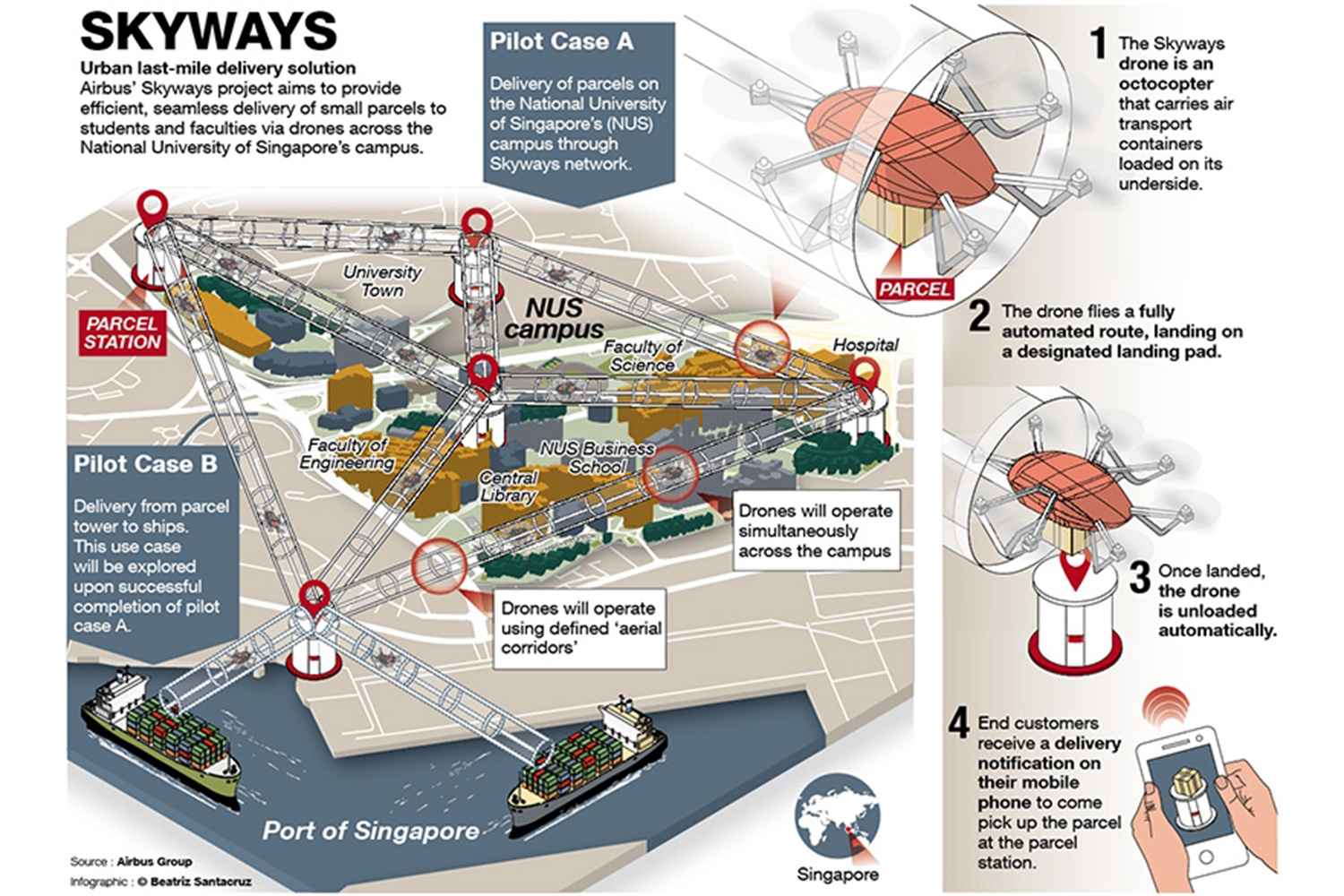
Over 70 years later, the promise of airborne automobiles continues to make headlines, in part because they’re still absent from the skies. But Airbus says it has heeded the call of sci-fi fans and frustrated commuters around the world.
Earth’s population is still growing and people are flocking to urban areas. By 2030, 60 percent of the world’s population will live in cities, according to Airbus, and these new residents will make traffic even more congested — unless we do something about it.
The solution at Airbus is to travel over traffic, rather than through it or underneath. This week the firm announced its innovation branch, A3, will lead the Vahana project, an effort to develop autonomous flying vehicles that could shuttle passengers and cargo for the price of a taxi ride.
Airbus didn’t release a detailed image of their electric vehicle, CityAirbus, but they did include the artist’s rendition featured above.
“In as little as ten years, we could have products on the market that revolutionize urban travel for millions of people,” A3 project executive Rodin Layoff said in a press release. “Many of the technologies needed, such as batteries, motors, and avionics are most of the way there.”
The company is so optimistic about its current technologies, it has scheduled prototype test flights for the end of 2017.
Not all necessary technologies are in order however. Since Vahana is intended to be autonomous, engineers will need to develop a machine vision system that lets the vehicle detect obstacles and maneuver around them. These systems are only just being implemented in road cars — let alone aircraft. Lyasoff called this, “one of the bigger challenges we aim to resolve as early as possible.”
Airbus also seems to be following in Amazon and 7-Eleven’s flight path with a delivery drone system called Skyways. Test flights will begin at the National University of Singapore in mid-2017, using closed flight corridors through which the drones can travel to and from the campus, post office, and port.
“I’m no big fan of Star Wars, but it’s not crazy to imagine that one day our big cities will have flying cars making their way along roads in the sky,” Airbus CEO Tom Enders said. “In a not too distant future, we’ll use our smartphones to book a fully automated flying taxi that will land outside our front door — without any pilot.”



